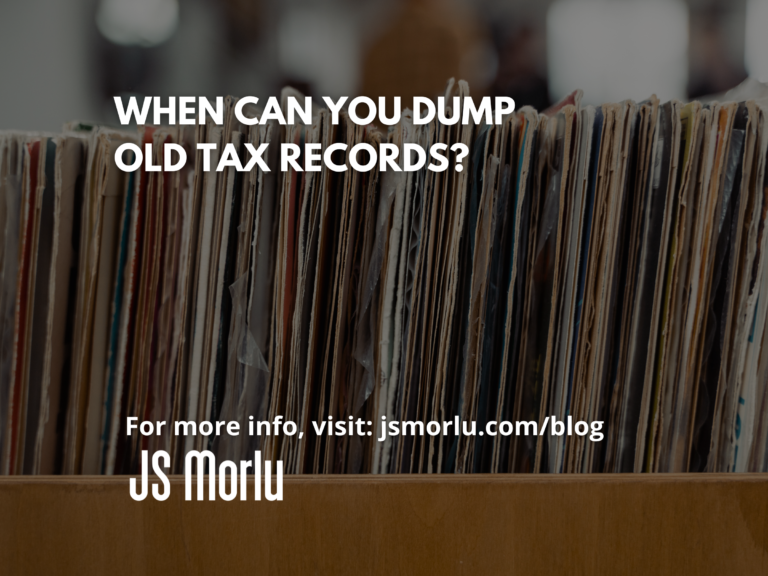Ever stared at a box of old tax documents, wondering if it’s safe to toss them? You’re not alone. Taxpayers constantly grapple with record-keeping: how long is enough, and what happens if I ditch them too soon?
The answer, like most things in tax land, depends. But fret not! This guide will shed light on the record-keeping labyrinth and empower you to make informed decisions.
The 3-Year Rule (with Exceptions)
The federal statute of limitations generally grants the IRS three years from your return’s due date (or filing date, whichever is later) to assess additional tax. This means you can potentially discard most records exceeding that timeframe. However, several situations extend this window:
- Omitting Big Income: Forgot to report a hefty chunk of income (over 25% of what’s on your return)? The IRS gets six years to come knocking.
- Filing Faux Pas: Didn’t file at all, submitted a fraudulent return, or deliberately dodged taxes? The IRS can assess taxes indefinitely in these cases.
- Unsigned Returns: Skipped the signature on your return? The IRS has all the time in the world to assess additional tax.
State Statutes: A Wrinkle in the Timeline
While the federal limit is three years, some states have a longer statute of limitations. This is because the IRS shares audit results with state tax authorities. The extra state time allows them to assess taxes based on any federal adjustments that impact your state return. So, check your state’s limitations to be extra safe.
Examples: Keeping Records Beyond the Minimum
Let’s illustrate this with some scenarios:
- Susan the Early Filer: Susan filed her 2020 return well before the April 15, 2021 deadline. Federally, she’s okay to discard most records by April 15, 2024. However, if her state has a longer limit, she might want to hold onto them for an extra year.
- Don the Procrastinator: Don, on the other hand, waited until June 1, 2021 to file his 2020 return. Federally, his safe disposal date is June 1, 2024. Again, state limitations might push this back.
Keep These Records Even After 3 Years
While the 3-year rule applies to most documents, some warrant a longer shelf life:
- Stock Whiz Information: Holding onto stock? Keep purchase records for at least four years after selling. This helps prove your profit (or loss) when tax time rolls around. Even though brokers often report this information to the IRS, it’s wise to maintain your own copies for ultimate proof.
- Dividend Reinvestment Records: Reinvesting dividends into more stock or mutual funds? Keep those statements for at least four years after the final sale. These show the amounts reinvested, which reduces your capital gains tax when you eventually sell.
- Property Purchase and Improvement Papers: Bought a house, investment property, or business asset? Hold onto acquisition records and documentation of major improvements for at least four years after selling the property. This helps determine your cost basis and potential capital gains tax.
Going Paperless? Here’s What You Need to Know
The digital age beckons! Can you ditch the paper and scan those documents instead? Absolutely! Just ensure you have a secure backup system in case of a computer crash or cyberattack.
Still Unsure? We’re Here to Help!
Tax record-keeping can be confusing. If you have questions about what to keep or discard, don’t hesitate to contact our office. We’re happy to guide you through the intricacies of tax record management and ensure you stay compliant.
JS Morlu LLC is a top-tier accounting firm based in Woodbridge, Virginia, with a team of highly experienced and qualified CPAs and business advisors. We are dedicated to providing comprehensive accounting, tax, and business advisory services to clients throughout the Washington, D.C. Metro Area and the surrounding regions. With over a decade of experience, we have cultivated a deep understanding of our clients’ needs and aspirations. We recognize that our clients seek more than just value-added accounting services; they seek a trusted partner who can guide them towards achieving their business goals and personal financial well-being.
Talk to us || What our clients says about us


